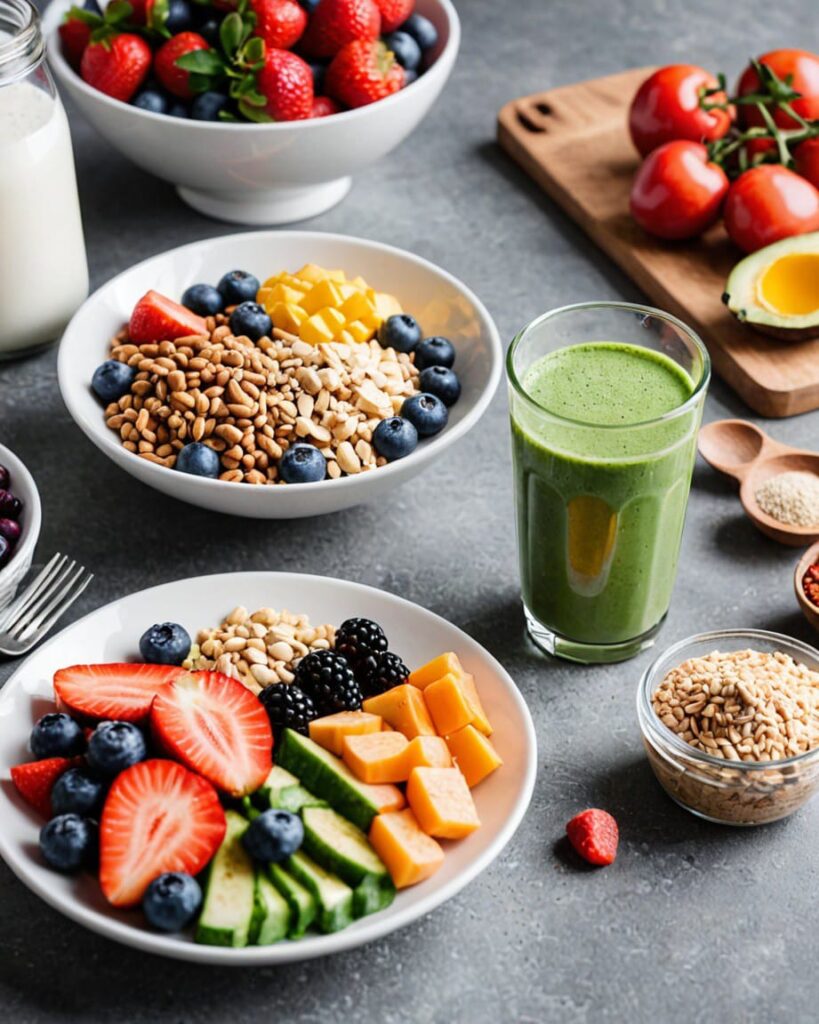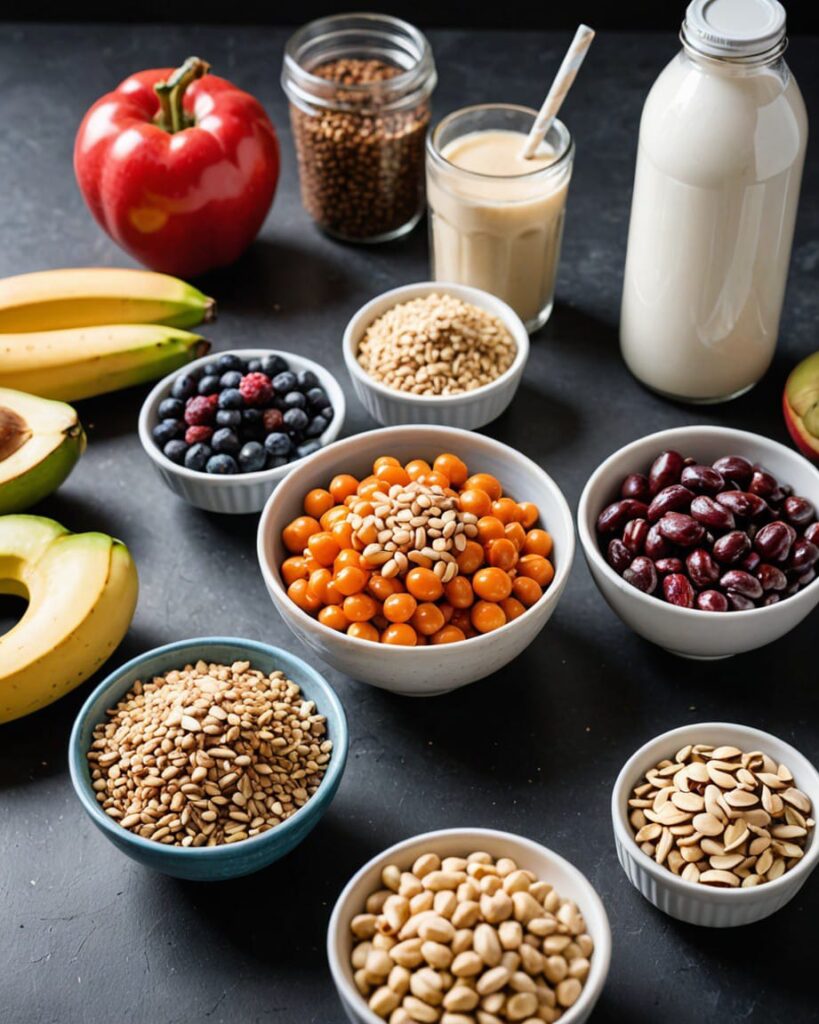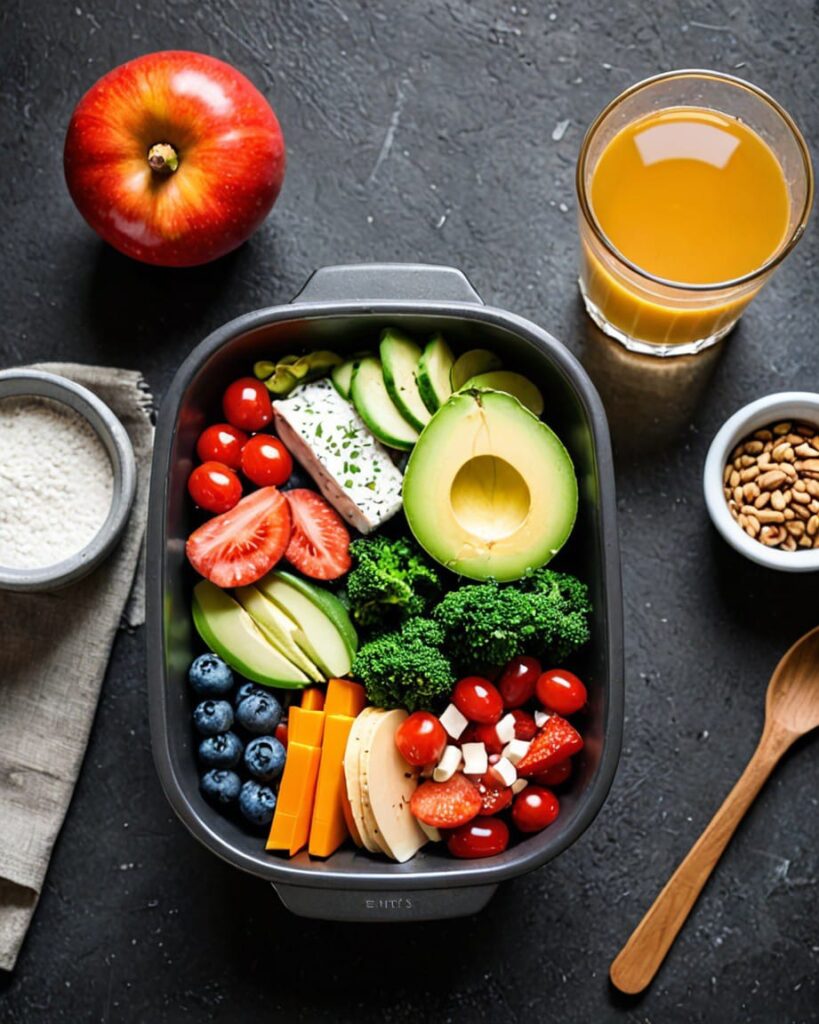Performance Nutrition for Athletes
Nutrition is important for athletes looking for peak performance, improved recovery, and overall well-being. It’s about attentively balancing macronutrients and micronutrients, strategically timing meals, and adjusting nutrition to the type and intensity of exercise.
- Energy Needs & Avoiding RED-S
Working out, athletes need more food energy and nutrients. When energy intake fails to match demand, athletes can develop Relative Energy Deficiency in Sport (RED-S)—a syndrome that impairs performance and heightens injury risk.
To prevent energy deficits, swimmers should have a planned diet, conducted ideally with the assistance of sports dietitians.

- Macros: Carbs, protein, and fat balanced with carbs, protein, and fat
Carbohydrates
Act as the main fuel, especially when doing high-intensity and long-duration work.
Daily requirements range from 3 to 12 g/kg body weight according to training loads. U.S. Anti-Doping Agency (USADA)
Carb-crams are what endurance athletes eat day in and day out to fill their glycogen stores.
Proteins
They are essential for muscle repair, recovery, and adaptation.
1.6–1.7 g/kg/day has been shown to be beneficial for strength athletes, in several divided servings.
Endurance athletes may require 1.2-1.4 g/kg/day to sustain protein oxidation during prolonged exercise.
Consuming protein at different times throughout the day increases muscle protein synthesis.

Fats
Protein is essential for the absorption of fat-soluble vitamins and for sustaining extended training.
Recommended intake is also much like other general dietary advice, emphasizing healthful sources (olive oil, nuts, etc.).
- Nutrient Timing Strategies
Strategic use of nutrient timing can provide performance benefits but will not make up for total energy intake.
Nutrient timing: Timing of nutrient intake around workouts may promote recovery, muscle synthesis, and fat via the “anabolic window.”
Carb-loading, especially for events lasting longer than 90 minutes, increases muscle glycogen when performed 1–2 days before competition.
Pre-Competition You should have a meal containing about 50% carbs, 25% protein, and 25% fruit/vegetables. 3-4 hours before competition (this can be in the form of a fruit/veg smoothie if solids aren’t your thing) Johns Hopkins Medicine
- Hydration & Fluid Replacement
Hydration is fundamental. Inadequate fluid consumption may be detrimental to exercise performance, cognition, and recovery.
Drinks intended for sports, like Gatorade, can restore electrolytes and energy, although there is no evidence to suggest one brand is more effective than any other.
Dairy milk might even be a better option than the classic post-exercise sports drink for muscle protein synthesis and for repleting glycogen.
- Supplements & Special Nutrients
Protein supplements—some studies show moderate effects on lean mass and time-to-exhaustion, while others show mixed results.
Omega-3s, creatine, and BCAAs could aid in muscle recovery, but whole foods should be at the forefront.
Tart cherry juice shows promise for attenuating inflammation and muscular soreness in endurance races.
Quinoa and bone broth provide less-heralded but effective streams of protein—utilized by major league teams such as the Philadelphia Eagles.
Caffeine Although the evidence is inconclusive, caffeine (3–5 mg/kg) might enhance both endurance and sprint performance; 2–4 capsules may be more effective than liquid.
- Whole Foods First
Focus on real, nutrient-dense food: whole grains, leafy greens, lean proteins, fruits, and veggies. Supplements should only “fill gaps.” Nutrition
- Nutrition Education & Individualization
Lack of knowledge leaves athletes wanting when it comes to meeting dietary needs.
Through counseling, workshops, or reputable online resources, education can enhance performance by modifying athletes’ dietary habits. Frontiers: U.S. Anti-Doping Agency (USADA)
My best advice is to get some online coaching; generic macro calculations may not be enough.
Frequently Asked Questions (FAQs)
Q1: How does nutrition vary between strength and endurance athletes?
Strength athletes consume more protein (~1.6–1.7 g/kg/day), whereas endurance athletes consume more carbohydrates (~3–12 g/kg/day) and moderate protein (~1.2–1.4 g/kg/day).
Q2: Is protein supplementation necessary?
Not always. Body mass and, less reliably, endurance might be modestly increased with supplementation. Personal baseline intake, diet, and context to training are relevant. EatingWell
Q3: What is carb-loading, and when is it beneficial?
Carb-loading refers to the practice of consuming large quantities of carbohydrate for 1–2 d before long-duration (\(\gt 90 min\)) events to elevate muscle glycogen stores during exercise and reduce time to fatigue.
Q4: Are sports drinks better than milk for recovery?
Not so fast: When it comes to muscle repair and rehydration, it turns out dairy milk may actually be more effective than sports drinks.
Q5: Which supplements truly have benefits?
(Caffeine [3 to 5 mg/kg] may improve performance; tart cherry juice might help with recovery; creatine and BCAAs are mixed bags.) Always prioritize whole foods.
Q6: How significant is personalized nutrition advice?
Crucial. Different priorities dictate different athletes’ nutritional requirements based on their specific sport, training, goals, and physiology—it is important to have professional expertise that will provide nutrition that bolsters health and supports performance.

Conclusion
Performance nutrition isn’t one-size-fits-all. It is based on meeting energy requirements, providing macronutrients, and maintaining hydration. Strategic timing, such as refueling lost nutrients before and after training or competition, can also yield results, and targeted strategies like carb-filling can have an added effect. Supplements work at points, but nutrient-dense whole foods count.
Crucially, nutrition must be personalized. Athletes need to obtain appropriate education and guidance to tailor the diet to their sport, training program, and individual goals. By having a strong nutrition plan, athletes dramatically increase the potential for performance, recovery, and their long-term health.